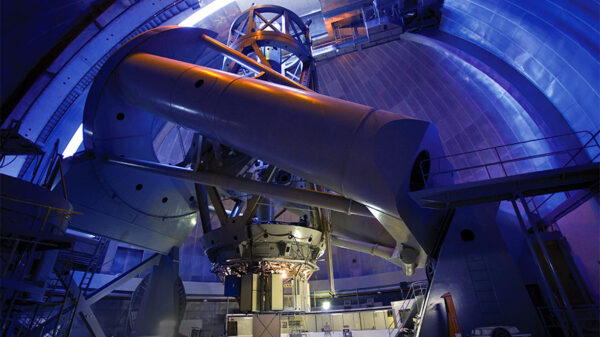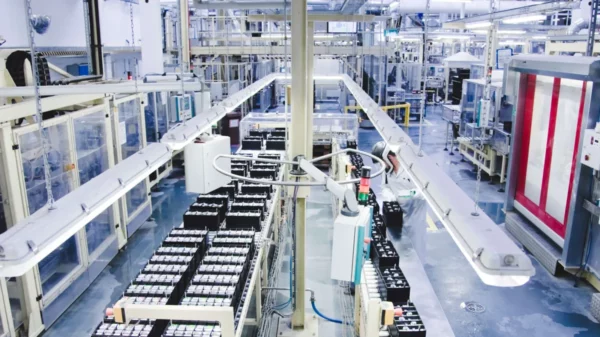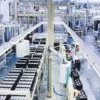Ford Motor Co (NYSE: F), the American automaker, signed lithium supply agreements with Nemaska Lithium, a subsidiary of Livent (NYSE: LTHM), Albemarle Corporation (NYSE: ALB), Sociedad Química y Minera de Chile (NYSE: SQM) and Compass Minerals (NYSE: CMP), in a strategic move to bolster its electric vehicle (EV) initiatives.
Entered into in May, the agreement terms include Canadian-based Nemaska Lithium supplying Ford with lithium products for an 11-year duration. This comprehensive supply arrangement encompasses the delivery of lithium hydroxide, with an annual quota of up to 13,000 tonnes, originating from the Bécancour facility located in Québec.
Prior to commencing the delivery of lithium hydroxide, Nemaska Lithium will initially provide Ford with spodumene concentrate sourced from its Whabouchi lithium mine.
Additionally, United States-based chemical giant, Albemarle, is set to provide Ford with over 100,000 tonnes of battery-grade lithium hydroxide over a five-year span, commencing in 2026. This supply is anticipated to meet the demand for producing approximately three million EV batteries.
Additionally, Albemarle and Ford have plans to investigate collaborative ventures aimed at establishing a “closed-loop solution” for recycling lithium-ion batteries.
Read more: What are the top five largest lithium companies in the world?
SQM lithium expected to help Ford vehicles meet inflation reduction act criteria
SQM will also provide Ford with battery-grade lithium carbonate and lithium hydroxide.
The source of SQM’s lithium is expected to assist Ford vehicles in meeting the criteria for the Inflation Reduction Act (IRA) consumer tax credit. This, in turn, will bolster Ford’s efforts to manufacture electric vehicles and enhance its footprint in the worldwide electric mobility markets.
“As one of the largest lithium producers in the world, for over 25 years, SQM has been investing in the technology and development of its own processes to produce high value-added lithium products with one of the lowest environmental footprints in the industry,” said Carlos Diaz, Executive Vice President Lithium of SQM in a statement.
“This alliance will allow both companies to contribute further to the decarbonization of the planet on a global scale.”
Compass Minerals will furnish Ford with battery-grade lithium carbonate from its lithium brine development project in Ogden, Utah, for a period of five years. They will supply up to 40 per cent of the project’s lithium carbonate once production commences.
Upon full operational capacity, Compass Minerals anticipates an annual commercial production capacity of 35 kilometric tonnes (kmt) of lithium carbonate equivalent.
The initial phase one capacity of battery-grade lithium carbonate, projected to be 11kmt, is slated to commence production in 2025.
No dollar value was provided for any deal.














